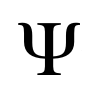Questions:
1. What did Jung mean with Polarities? Describe Jung's Polarities in detail.
2. Explain which polarities apply to you. Give details. How do they serve you? What do you wish to change?
Answers:
1. Jung believed that all humans possess certain specific patterns of behavior and perception. He considered these pattern or characteristics polarities. A polarity is the relationship between two elements that are on opposite ends of a spectrum with neither element, or in this case pattern of behavior and perception, being right or wrong. Jung believed that each of these polarities develops differently, with one being the more dominant and conscious one, causing the other one to be less dominant and thus more unconscious. Additionally he believed that an individual's personality type determines how he or she processes and reacts to stimuli. The basic patterns or types of personality according to Jung where Feeling/Thinking and Intuition/Sensation; two pairs of opposite poles.
In addition to these four basic functions Jung also included the polarity introversion/extroversion - each of which can combine with the other four elements for a total of 8 personality types.
2. Thinking and Feeling are opposite polarities. Thinking individuals are more likely to react cognitively to stimuli. They intellectually process stimuli and try to interpret and understand them by applying cognitive processes. Feeling individuals react emotionally rather than cognitively to stimuli.
Sensation and Intuition are also polarities. Sensation driven individuals process stimuli through use of their senses. These individuals use a more scientific approach by applying previous experiences and logic to figure things out. Intuition driven individuals rely on hunches rather than experiences. They listen to their own instincts. These individuals are more likely to react to a stimulus instead of thinking about it.
A judging personality values planning and organization. They have a...



GREAT ESSAY
gREAT ESSAY.WOW WHAT A NICE ESSAY . a++++ . tHIS PERSON RELLAY KNOW WHAT HHE TALKING ABOUTA
2 out of 2 people found this comment useful.